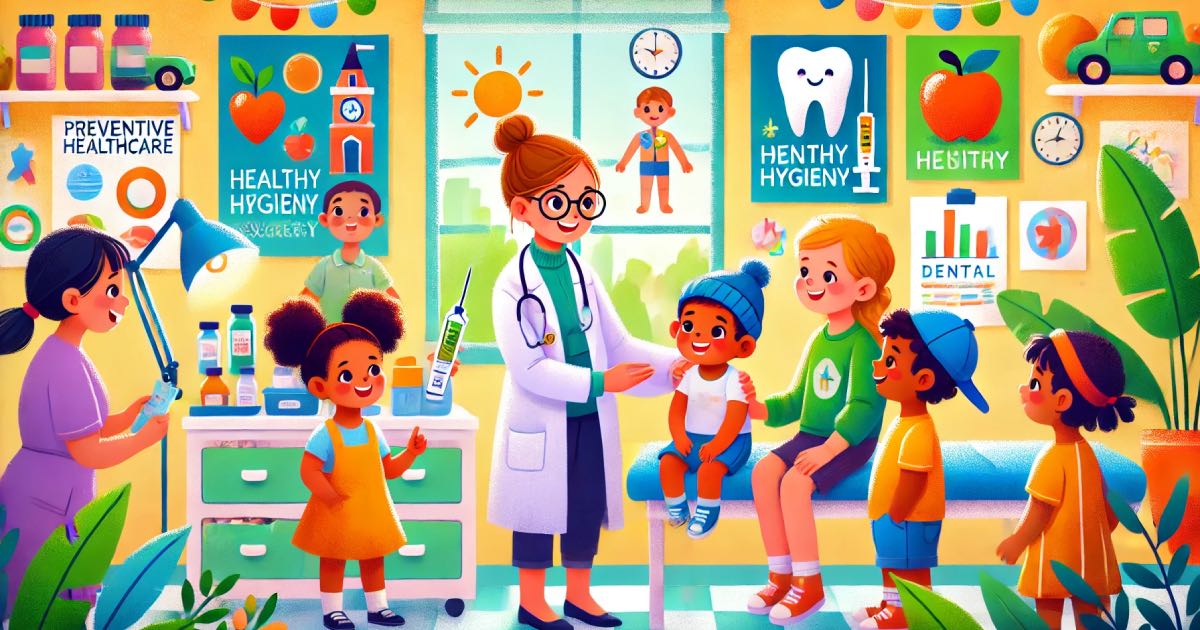The Importance of Preventive Healthcare for Children

Preventive healthcare is crucial for ensuring the well-being and healthy development of children. It encompasses a range of proactive measures, such as vaccinations, regular check-ups, screenings, and education about healthy habits. These efforts not only protect children from illnesses but also lay the foundation for lifelong health. Here’s why it matters:
1. Early Detection of Health Issues
Preventive care facilitates early diagnosis of potential health problems. Regular check-ups and screenings can identify developmental delays, vision or hearing problems, and chronic conditions like asthma or diabetes. Early intervention can significantly improve outcomes and reduce the severity of these conditions.
2. Vaccinations: Shielding Against Diseases
Vaccines are a cornerstone of preventive healthcare. They protect children from serious illnesses such as measles, polio, and whooping cough, which can have long-term consequences or even be fatal. High vaccination rates also contribute to community immunity, protecting those who cannot be vaccinated.
3. Promoting Healthy Development
Routine visits to pediatricians allow healthcare providers to monitor growth and development milestones. They provide parents with guidance on nutrition, exercise, and sleep, ensuring children develop healthy habits that will last a lifetime.
4. Reducing Healthcare Costs
Preventive care can significantly reduce medical expenses in the long run by preventing diseases or catching them early. Treating advanced illnesses is often far more expensive and complex than addressing conditions in their early stages.
5. Building a Lifelong Habit of Health Awareness
Children who grow up with regular exposure to preventive healthcare are more likely to value and prioritize their health as adults. This instills a culture of self-care and health literacy, leading to better overall public health outcomes.
Key Components of Preventive Healthcare for Children:
- Routine Check-Ups: Monitoring physical, emotional, and cognitive development.
- Immunizations: Following recommended schedules to protect against infectious diseases.
- Dental Care: Early dental visits to prevent cavities and teach good oral hygiene.
- Healthy Lifestyle Education: Guidance on diet, physical activity, and mental health.
- Safety Measures: Educating about injury prevention, such as car seat use and helmet safety.
Conclusion
Investing in preventive healthcare for children is an investment in their future and society’s well-being. By prioritizing prevention, we empower children to lead healthier, happier, and more productive lives.










